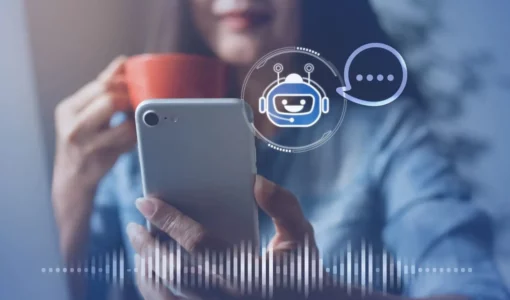Impact of ChatGPT on medical chatbots as a disruptive technology
Impact of ChatGPT on medical chatbots as a disruptive technology

Such guidance may have been true when the algorithm was first trained, based on accepted knowledge, but it hadn’t been updated. There is no end to the demands that the search engine can make as a test to improve your website. This gets you at the top of your target audience’s search results in this dynamic area of digital marketing. Individuals may become disappointed with their primary care physician or self-diagnose too frequently. If created by experienced programmers, the bot will be able to respond more naturally when given unusual facts or exceptions. No matter how quick the automation, the immersive pleasure of human engagement will always outweigh robotic conversation.
What is AI technology in healthcare?
AI in healthcare is an umbrella term to describe the application of machine learning (ML) algorithms and other cognitive technologies in medical settings. In the simplest sense, AI is when computers and other machines mimic human cognition, and are capable of learning, thinking, and making decisions or taking actions.
These chatbots are not meant to replace licensed mental health professionals but rather complement their work. Cognitive behavioral therapy can also be practiced through conversational chatbots to some extent. Healthcare chatbots can be a valuable resource for managing basic patient inquiries that are frequently asked repeatedly.
Improved Patient Outcomes
Developing NLP-based chatbots can help interpret a patient’s requests regardless of the variety of inputs. When examining the symptoms, more accuracy of responses is crucial, and NLP can help accomplish this. To further speed up the procedure, an AI healthcare chatbot can gather and process co-payments. With a team of meticulous healthcare consultants on board, ScienceSoft will design metadialog.com a medical chatbot to drive maximum value and minimize risks. Taking the lead in AI projects since 1989, ScienceSoft’s experienced teams identified challenges when developing medical chatbots and worked out the ways to resolve them. ScienceSoft’s software engineers and data scientists prioritize the reliability and safety of medical chatbots and use the following technologies.
What are the benefits of AI chatbots in healthcare?
AI chatbots can also facilitate communication between healthcare professionals and patients, leading to improved coordination. For example, AI chatbots can help patients schedule appointments, track their symptoms, and receive reminders for follow-up care.
Chatbot answers were more likely to have missing content than human answers were, but the answers were slightly less likely to harm users’ physical or mental health. Chatbots are now able to provide patients with treatment and medication information after diagnosis without having to directly contact a physician. Such a system was proposed by Mathew et al [30] that identifies the symptoms, predicts the disease using a symptom–disease data set, and recommends a suitable treatment. Although this may seem as an attractive option for patients looking for a fast solution, computers are still prone to errors, and bypassing professional inspection may be an area of concern. Chatbots may also be an effective resource for patients who want to learn why a certain treatment is necessary.
Improved Patient Engagement
In addition to saving money, medical bots can offer faster access to healthcare services. According to a survey, 78% of people prefer using bots for medical services. The medical chatbot can assist as an interpreter for non-English speaking patients. The bot can then interpret during consultations and appointments, eliminating language issues. A healthcare chatbot can link patients and trials according to their health data and demographics, boosting clinical trial participation and accelerating research.
AI technology is becoming an increasingly popular healthcare tool, but its advice should be taken with a healthy grain of salt. While most Americans and healthcare providers are optimistic about the benefits of AI in healthcare, concerns remain about the accuracy and reliability of the information it provides. There’s also the issue of patients’ data privacy, which is of the utmost concern in the healthcare industry. As these technologies evolve, it will be critical to alleviate these concerns so AI can benefit the public with minimal side effects.
Collect feedback from patients
You’ll have lower costs, less effort, reduced downtime, improved staff morale, and a better and consistent service for patients. As healthcare technology advances, the accuracy and relevancy of care bots as virtual assistants will also increase. You cannot automate everything, but if you opt for conversational AI agents as virtual health assistants, you can deliver better healthcare even to the remotest corners of the world. The patient virtual assistant then stores this information in your system, which can be time-saving for doctors in an emergency. You can also use this information to make appointments, facilitate patient admission, symptom tracking, doctor-patient communication, and medical record keeping.

Robotic process automation in healthcare is a rapidly growing AI technology with the potential to transform the healthcare industry. Many healthcare organizations are turning to RPA to streamline repetitive processes and improve efficiency. AI chatbots can assess patients for clinical trial eligibility and supply information about ongoing trials, accelerating the process of enrolling participants and collecting data. The New Hyde Park, N.Y., healthcare provider launched a chatbot to help reduce no-shows for colonoscopies at the company’s Long Island Jewish (LIJ) Medical Center and Southside Hospital.
Frequently asked questions
By offering patients instant access to medical advice and support, AI chatbots can help to divert non-urgent cases away from emergency departments, reducing pressure on healthcare providers and improving patient outcomes. AI chatbots like ChatGPT have the potential to revolutionize virtual healthcare by automating responses to common patient inquiries, reducing the workload of healthcare professionals, and improving patient engagement. By providing instant and accurate information, chatbots can enhance patient education and empower individuals to take a more active role in their own healthcare. The integration of ChatGPT into healthcare centers at UC San Diego and UW serves as an example of how AI technology can be used to streamline patient communication and improve the efficiency of healthcare services.
- A US-based care solutions provider got a patient mobile app integrated with a medical chatbot.
- With WhTech-WMS you can manage access and always know the location of your assets.
- Those responses can also help the bot direct patients to the right services based on the severity of their condition.
- Practical experience, empathy, and interpersonal skills are essential components of healthcare that AI systems do not easily replicate.
- ScienceSoft uses Cordova to create cross-platform apps and avoid high project costs that may come with native mobile development.
- Among these, two key questions are whether techniques deviate from standard practice, and whether the test increases the risk to participants.
Advanced chatbots can also track various health parameters and alert patients in case immediate medical intervention is required. You can design chatbots in healthcare to ask patients the kind of therapy they’d like to select from (for instance – Cognitive Behavioral Therapy, Dialectical Behavioral Therapy, Drug, and Alcohol Therapy, etc.). They can also choose their preferred therapist and a convenient day and time for their appointment. Users can interact with chatbots via text, microphones, and cameras.For example, Woebot, which we listed among successful chatbots, provides CBT, mindfulness, and Dialectical Behavior Therapy (CBT).
Babylon Health
This allows the patient to be taken care of fast and can be helpful during future doctor’s or nurse’s appointments. Healthcare chatbots can offer this information to patients in a quick and easy format, including information about nearby medical facilities, hours of operation, and nearby pharmacies and drugstores for prescription refills. They can also be programmed to answer specific questions about a certain condition, such as what to do during a medical crisis or what to expect during a medical procedure. With AI technology, chatbots can answer questions much faster – and, in some cases, better – than a human assistant would be able to.
- There are several benefits of chatbots in the healthcare industry, and it’s not just for practitioners but also for patients.
- A healthcare chatbot can provide an instant response to every general query a patient has by acting as a one-stop shop.
- The above-stated numbers confirm that healthcare chatbots surely have a bright future.
- Smoking accounts for at least 30% of all cancer deaths; however, up to 50% of survivors continue to smoke [88].
- They’re highly trained to detect one thing, like a tumor or sepsis, using specific test results as input.
- Of them, 3 studies (75%) targeted healthy lifestyles, and 25% (1/4) targeted reduction in substance misuse.
The ubiquitous use of smartphones, IoT, telehealth, and other related technologies fosters the market’s expansion. Market Research Future found that the medical chatbot market in 2022 was valued at $250.9 million and will increase to $768.1 million by 2028, demonstrating a sustained growth rate of 19.8% in a year. Bots can handle routine tasks like appointment scheduling and basic inquiries. So that frees up your providers’ time to focus on more complex patient needs. And that then can lead to more efficiency and productivity, resulting in improved care.
ChatGPT as a disruptive technology
Further refinements and large-scale implementations are still required to determine the benefits across different populations and sectors in health care [26]. Although overall satisfaction is found to be relatively high, there is still room for improvement by taking into account user feedback tailored to the patient’s changing needs during recovery. In combination with wearable technology and affordable software, chatbots have great potential to affect patient monitoring solutions. In terms of cancer diagnostics, AI-based computer vision is a function often used in chatbots that can recognize subtle patterns from images. This would increase physicians’ confidence when identifying cancer types, as even highly trained individuals may not always agree on the diagnosis [52]. Studies have shown that the interpretation of medical images for the diagnosis of tumors performs equally well or better with AI compared with experts [53-56].
This is a chat messaging service for health professionals offering assistance with appropriate drug use information during breastfeeding. Promising progress has also been made in using AI for radiotherapy to reduce the workload of radiation staff or identify at-risk patients by collecting outcomes before and after treatment [70]. An ideal chatbot for health care professionals’ use would be able to accurately detect diseases and provide the proper course of recommendations, which are functions currently limited by time and budgetary constraints. Continual algorithm training and updates would be necessary because of the constant improvements in current standards of care. Further refinements and testing for the accuracy of algorithms are required before clinical implementation [71]. This area holds tremendous potential, as an estimated ≥50% of all patients with cancer have used radiotherapy during the course of their treatment.
What are the disadvantages of medical chatbots?
- No Real Human Interaction.
- Limited Information.
- Security Concerns.
- Inaccurate Data.
- Reliance on Big Data and AI.
- Chatbot Overload.
- Lack of Trust.
- Misleading Medical Advice.

